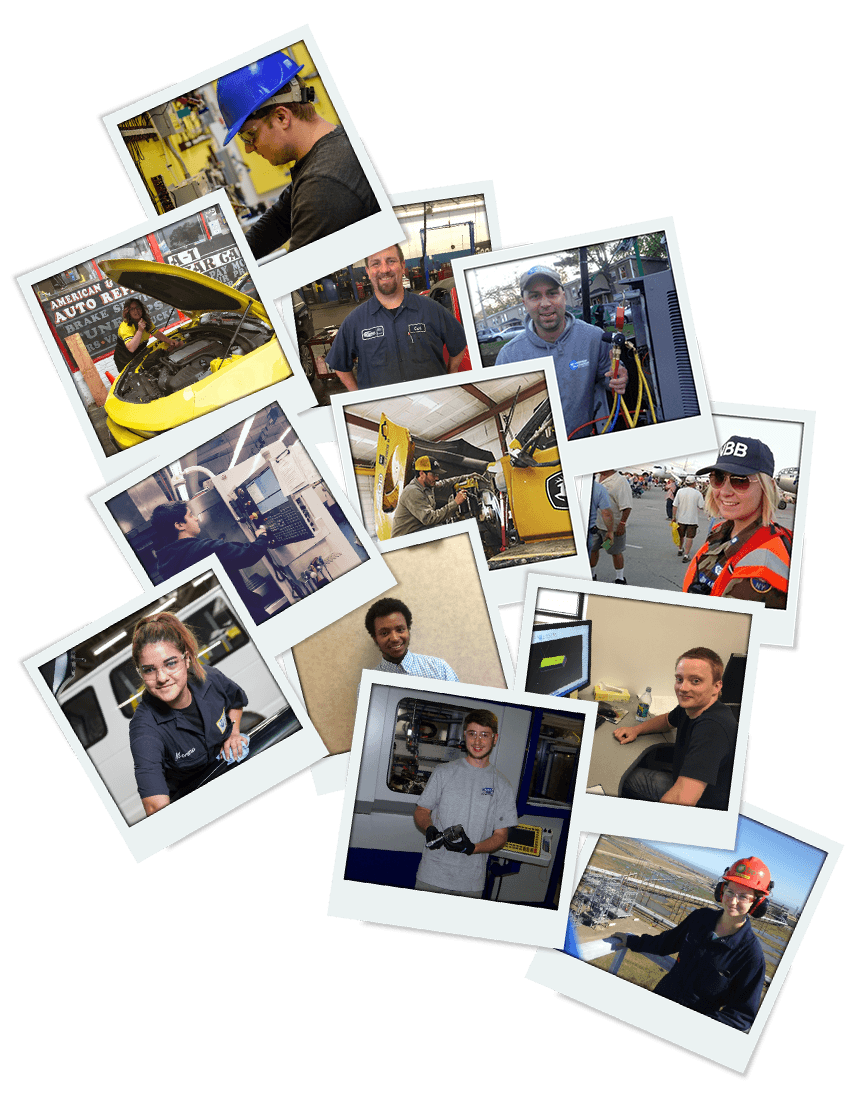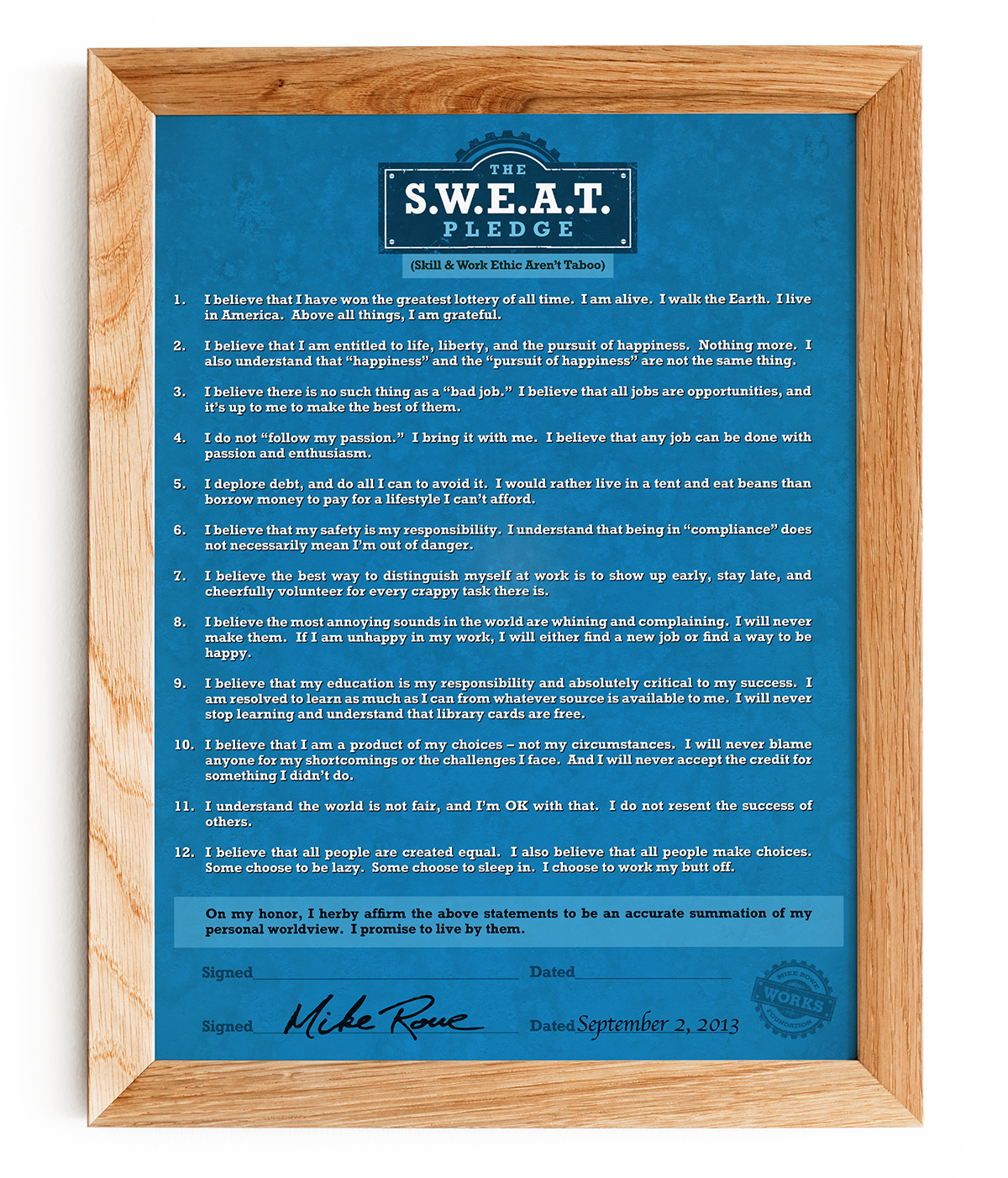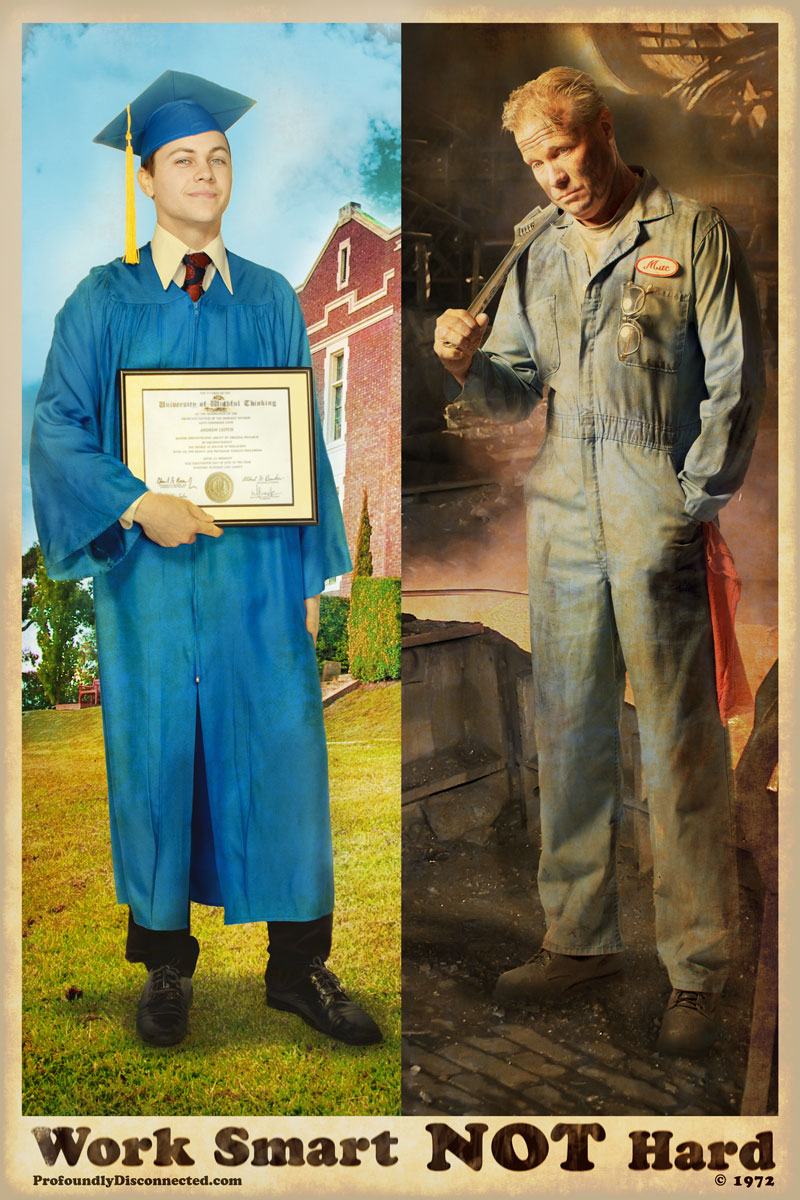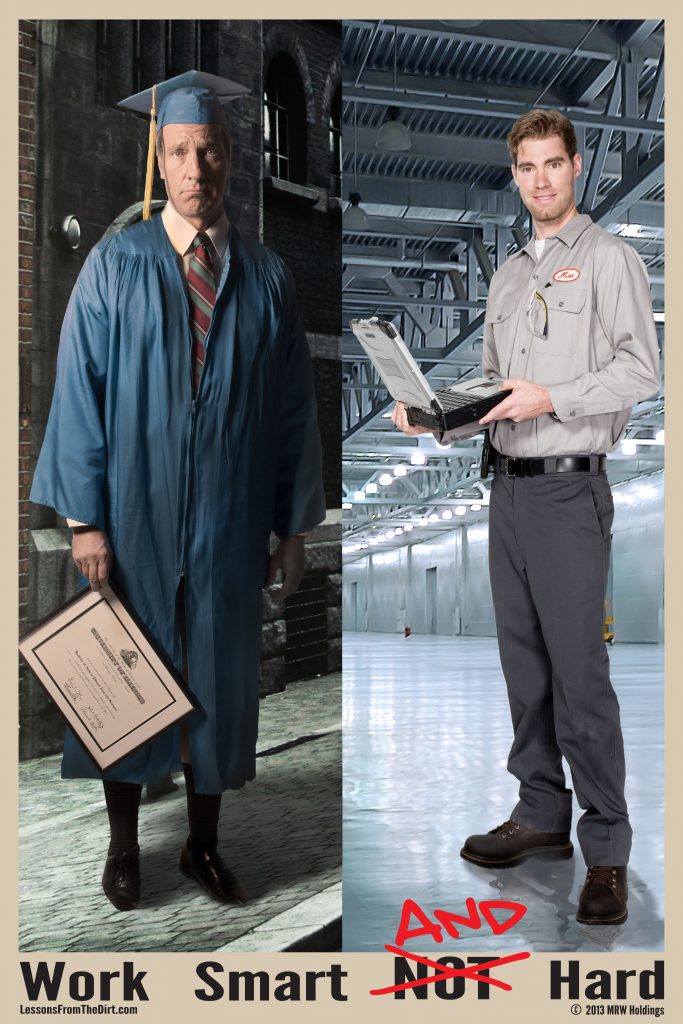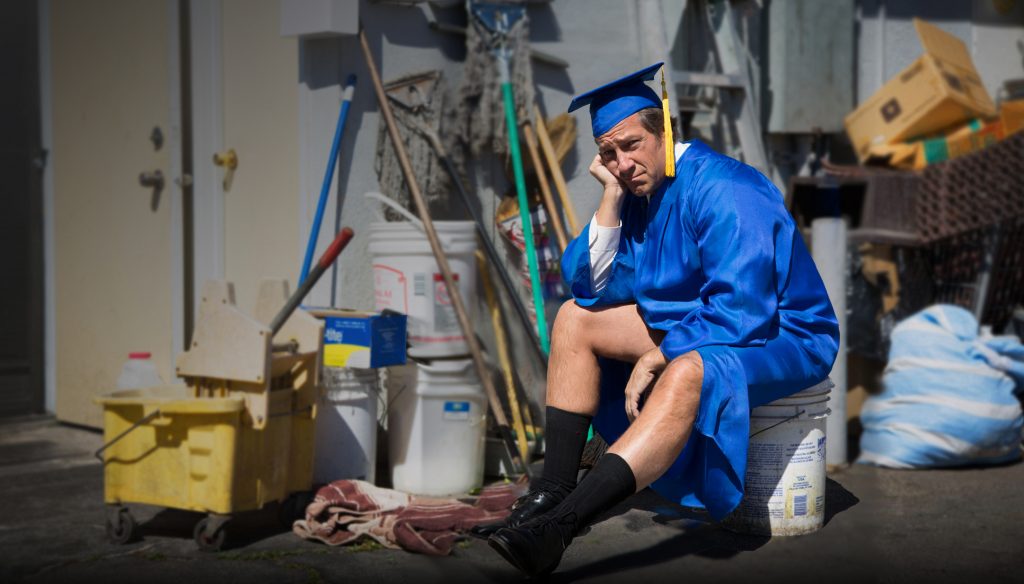We've got a PR problem.
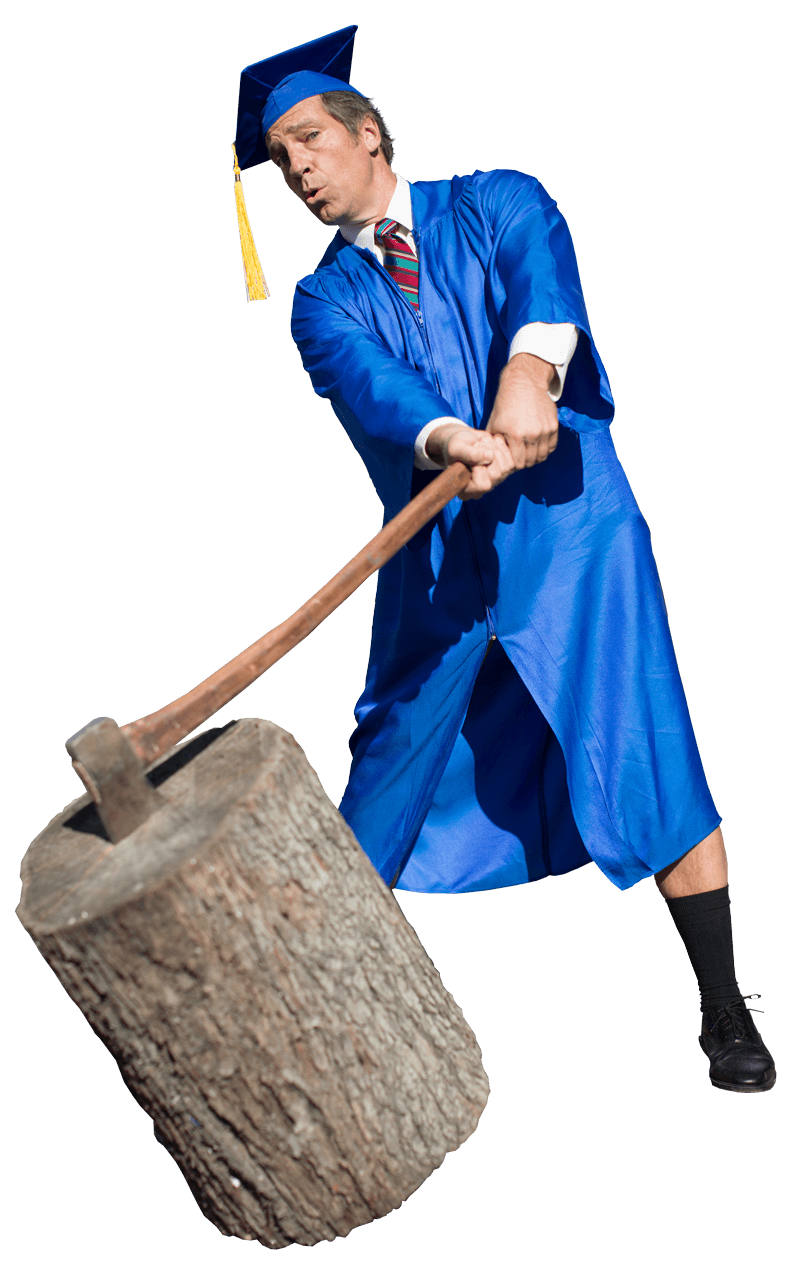
What's the problem?
We've made work the enemy.
America has become slowly but undeniably disconnected from the most fundamental elements of civilization—food, energy, education, and the very nature of work itself.
Over the last 30 years, America has convinced itself that the best path for the most people is an expensive, four-year degree. Pop culture has glorified the “corner office job” while unintentionally belittling the jobs that helped build the corner office. As a result, our society has devalued any other path to success and happiness. Community colleges, trade schools, and apprenticeship programs are labeled as “alternative.” Millions of well-intended parents and guidance counselors see apprenticeships and on-the-job training opportunities as “vocational consolation prizes,” best suited for those not cut out for the brass ring: a four-year degree. The push for higher education has coincided with the removal of vocational arts from high schools nationwide. And the effects of this one-two punch have laid the foundation for a widening skills gap and massive student loan debt.
Today, the skills gap is wider than it’s ever been. The cost of college tuition has soared faster than the cost of food, energy, real estate, and health care. Student loan debt is the second highest consumer debt category in the United States with more than 45 million borrowers who collectively owe more than $1.7 trillion. According to the Bureau of Labor Statistics, there are more than 7.6 million jobs available across the country, the majority of which don’t require a four-year degree. And still, we talk about millions of “shovel ready” jobs for a society that doesn’t encourage people to pick up a shovel. We keep lending money we don’t have to people who can’t pay it back for jobs that don’t exist. Bit by bit, our culture reaffirms the misguided belief that a career in the skilled trades shouldn’t be desired. And that lack of enthusiasm has reshaped our expectations of a “good job” into something that no longer resembles work.
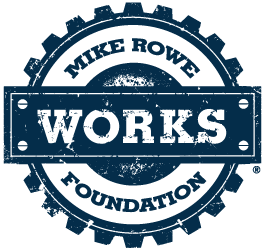
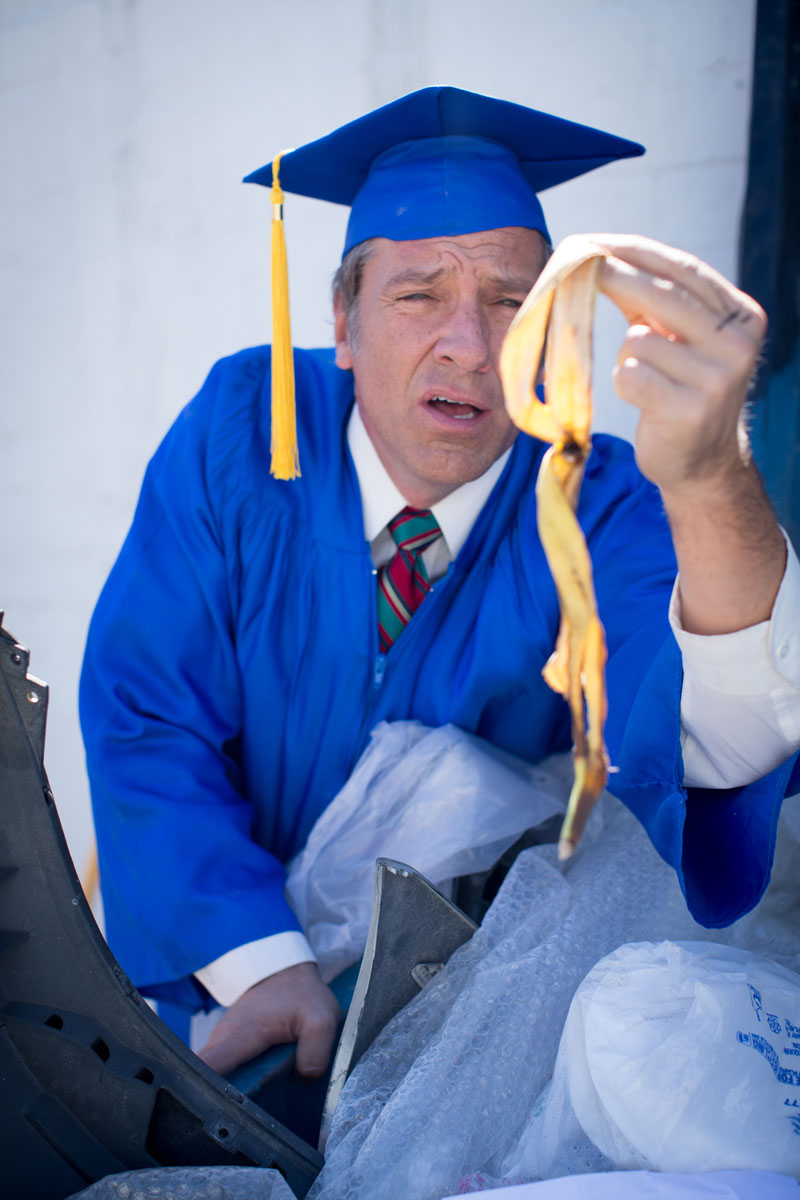
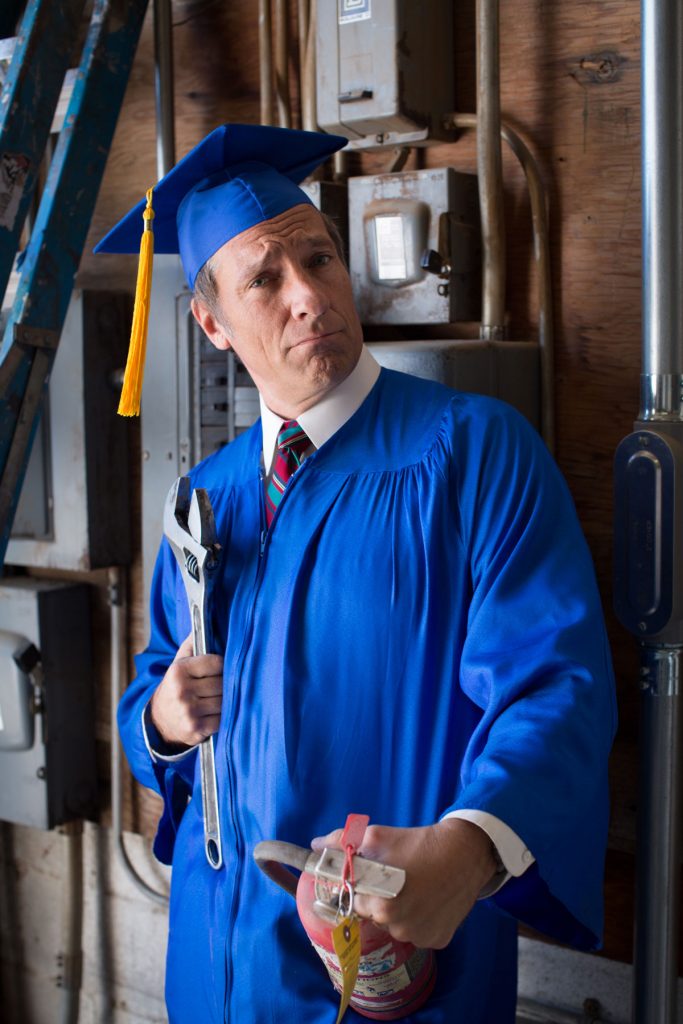 As an apprentice on the TV series Dirty Jobs, Mike Rowe traveled to every state and worked with plumbers, electricians, steamfitters, pipefitters, brick layers, farmers, fishers, and a bunch of other skilled workers who help keep our polite society humming along. They were individuals who found opportunity where no one else thought to look. They were entrepreneurs running successful businesses. They were happy people who managed to figure out a positive work-life balance. To his surprise, they didn’t resemble the unflattering, blue-collar workers often portrayed in the media. This misperception resulted in an undeniable disparity between available skilled jobs and the unemployed local population. Week after week, Mike saw “Help Wanted” signs everywhere, even when unemployment took over news headlines. Our society didn’t, and still doesn’t, have a trained workforce standing by or willing to fill the positions that actually exist.
As an apprentice on the TV series Dirty Jobs, Mike Rowe traveled to every state and worked with plumbers, electricians, steamfitters, pipefitters, brick layers, farmers, fishers, and a bunch of other skilled workers who help keep our polite society humming along. They were individuals who found opportunity where no one else thought to look. They were entrepreneurs running successful businesses. They were happy people who managed to figure out a positive work-life balance. To his surprise, they didn’t resemble the unflattering, blue-collar workers often portrayed in the media. This misperception resulted in an undeniable disparity between available skilled jobs and the unemployed local population. Week after week, Mike saw “Help Wanted” signs everywhere, even when unemployment took over news headlines. Our society didn’t, and still doesn’t, have a trained workforce standing by or willing to fill the positions that actually exist.